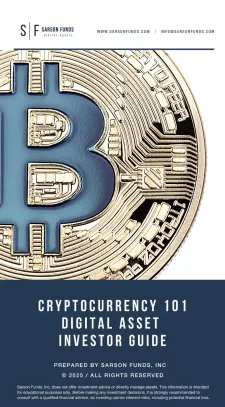
The milestone of Bitcoin reaching $100,000 represents more than just a significant price point; it signifies a seismic shift in how we perceive money, trust, and financial independence. Bitcoin stands as more than a digital asset; it is a revolutionary force challenging the very foundations of the existing financial system.
Bitcoin as a Reserve Currency, Not Just a Speculative Asset
A $100,000 Bitcoin reflects the growing recognition of Bitcoin as a global reserve asset. Central to this narrative are its unique properties: decentralization, immutability, and a capped supply of 21 million coins. These attributes make it resistant to inflation, manipulation, and central control—qualities often lacking in fiat currencies.
Notably, high-profile financial leaders are acknowledging Bitcoin’s evolving role. On December 4, at the DealBook Summit, Jerome Powell, Chair of the US Federal Reserve, described Bitcoin as a rival to gold, rather than the dollar, labeling it a speculative and digital asset akin to gold. While not positioned as a direct competitor to fiat currencies, Powell’s comments underscore Bitcoin’s increasing status as a store of value and an alternative to traditional financial tools.
A Departure from the Existing Financial System
Bitcoin’s rise to $100,000 is more than just market activity; it signifies a major departure from traditional financial systems. The global financial landscape, often marked by centralization, opaque processes, and susceptibility to crises, has left many feeling excluded or disadvantaged.
Bitcoin offers an alternative: a decentralized network where transactions occur peer-to-peer without reliance on intermediaries. Its blockchain protocol ensures transparency and security, providing a stark contrast to conventional systems. A six-figure valuation signals the growing appeal of decentralized options over centralized systems, especially for those seeking greater control over their financial assets.
Powell’s recognition of Bitcoin’s parallels to gold further underscores this broader shift. While traditional institutions may view it as speculative, its supporters see it as a viable path to financial autonomy.
A Tool for Financial Access and Independence
For many, Bitcoin represents more than a technological breakthrough—it’s an opportunity for financial inclusion. In a world where millions remain unbanked, Bitcoin enables participation in the global economy with just an internet connection.
It also offers an escape from the limitations of capital controls, high remittance fees, and wealth confiscation in restrictive regimes. The declining availability of Bitcoin on exchanges, driven by long-term holders, demonstrates its growing role as a vehicle for preserving value.
Redefining Trust and Ownership in a Digital Economy
Bitcoin is transforming our concepts of trust and ownership. Its blockchain ensures transactions are immutable and verifiable, eliminating the need for centralized authorities to mediate trust.
Moreover, Bitcoin ownership signifies true ownership. Unlike fiat currency in a bank account or gold stored in a vault, Bitcoin is entirely under the holder’s control through private keys. This redefinition of ownership grants individuals sovereignty over their assets in an increasingly digital world.
A Revolution in Progress
Jerome Powell’s remarks frame Bitcoin as speculative, yet its trajectory reflects its broader role as an alternative financial system. Bitcoin at $100,000 is more than a number—it symbolizes societal shifts toward decentralization, transparency, and personal financial empowerment.
Bitcoin is not just another asset; it challenges conventional thinking about money and finance. Its rise demonstrates the demand for a more inclusive and secure financial system, grounded in digital innovation and individual control.
Disclosures: Sarson Funds, Inc. is a third-party marketing company and does not directly manage assets or provide investment advice. This information is for educational purposes only and is not intended as investment advice. It is recommended to consult a professional financial advisor before making any investment decisions. Past performance does not indicate future results. The opinions expressed here are solely those of the authors. Therefore, please consult with an investment advisor before making any investment decisions or have them contact Sarson Funds directly at [email protected].








